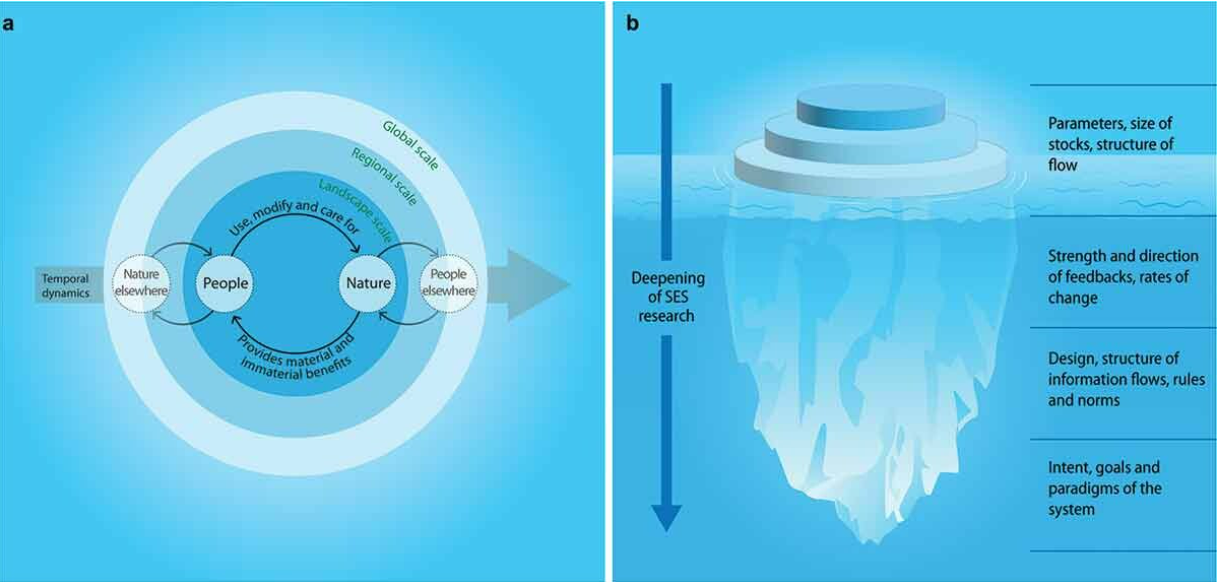The programme on ecosystem change and society (PECS) – a decade of deepening social-ecological research through a place-based focus
The Programme on Ecosystem Change and Society (PECS) was established in 2011, and is now one of the major international social-ecological systems (SES) research networks. During this time, SES research has undergone a phase of rapid growth and has grown into an influential branch of sustainability science. In this Perspective, we argue that SES research has also deepened over the past decade, and helped to shed light on key dimensions of SES dynamics (e.g. system feedbacks, aspects of system design, goals and paradigms) that can lead to tangible action for solving the major sustainability challenges of our time. We suggest four ways in which the growth of place-based SES research, fostered by networks such as PECS, has contributed to these developments, namely by: 1) shedding light on transformational change, 2) revealing the social dynamics shaping SES, 3) bringing together diverse types of knowledge, and 4) encouraging reflexive researchers.

Norström et al., 2022
Panel a shows a traditional social – ecological systems (SES) framework that highlights how SES are interdependent and linked systems of people and nature, which are nested across scales and play out against a backdrop of global change and other temporal dynamics (adapted from Fischer et al. 2015). Panel b conceptualises an SES as an iceberg. If viewed from above, only the tip of the iceberg is visible, and this represents key parameters, variables and feedbacks of an SES. However, if viewed from the side, the full extent of the SES iceberg stretches far below the surface. The subsurface dimensions of SES dynamics include hidden system feedbacks, aspects of system design, and the goals and paradigms that underpin the underlying intents that shape SES dynamics.
Find the paper by Norström et al. (2022) here.
